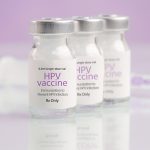-
April 11: The Week in Cancer News
NIH layoffs delay research benefiting cancer patients, and celebrity cancer news is often missing important information.
by Kevin McLaughlin
-
April 4: The Week in Cancer News
Some early-stage breast cancer patients may not need surgery, and FDA approves Imfinzi for muscle-invasive bladder cancer.
by Eric Fitzsimmons
-
March 28: The Week in Cancer News
New prostate cancer surgery approach can prevent sexual side effects, and some people with esophageal cancer may be able to avoid surgery.
by Thomas Celona
-
March 21: The Week in Cancer News
Cooling and compression help manage common side effect of chemotherapy, and deadlines encourage people to complete colorectal cancer screening.
by Marci A. Landsmann
-
March 14: The Week in Cancer News
Pickleball encourages more activity in cancer survivors, and urine test detects aggressive prostate cancer.
by Kevin McLaughlin
-
March 7: The Week in Cancer News
HPV vaccine credited for 80% drop in lesions that can lead to cervical cancer, and FDA approves targeted therapy for esophageal cancer.
by Thomas Celona
-
February 28: The Week in Cancer News
Exercise associated with increased survival after colon cancer, and screening costs remain a hurdle for women with dense breasts.
by Eric Fitzsimmons
-
February 21: The Week in Cancer News
Men with metastatic prostate cancer urged to ask questions about care, and early-phase study suggests benefit of pancreatic cancer vaccine.
by Marci A. Landsmann
-
February 14: The Week in Cancer News
Pesticide firms try to block cancer-related lawsuits, and cancer pain leads to greater tobacco and cannabis use.
by Kevin McLaughlin
-
February 7: The Week in Cancer News
Researchers explore musical toxicity from cancer treatment, and kidney cancer vaccine shows potential in early trial.
by Eric Fitzsimmons
Cancer Talk
The Power of Comedy
In a new play, the pain of cancer can be a chance to laugh.
by Ashley P. Taylor
Melanoma Risk in Childhood Cancer SurvivorsPeople treated for childhood cancer found to have twice the risk of developing melanoma as an adult.
by Cameron Walker
Online Second OpinionsMore than half of patients who participated in a program offering online second opinions were recommended a change to their treatment plan.
by Eric Fitzsimmons
Musical Toxicity an Effect of Cancer TreatmentStudy finding cancer treatment affects ability to play or sing music highlights need for physical therapy, experts say.
by Kyle Bagenstose














